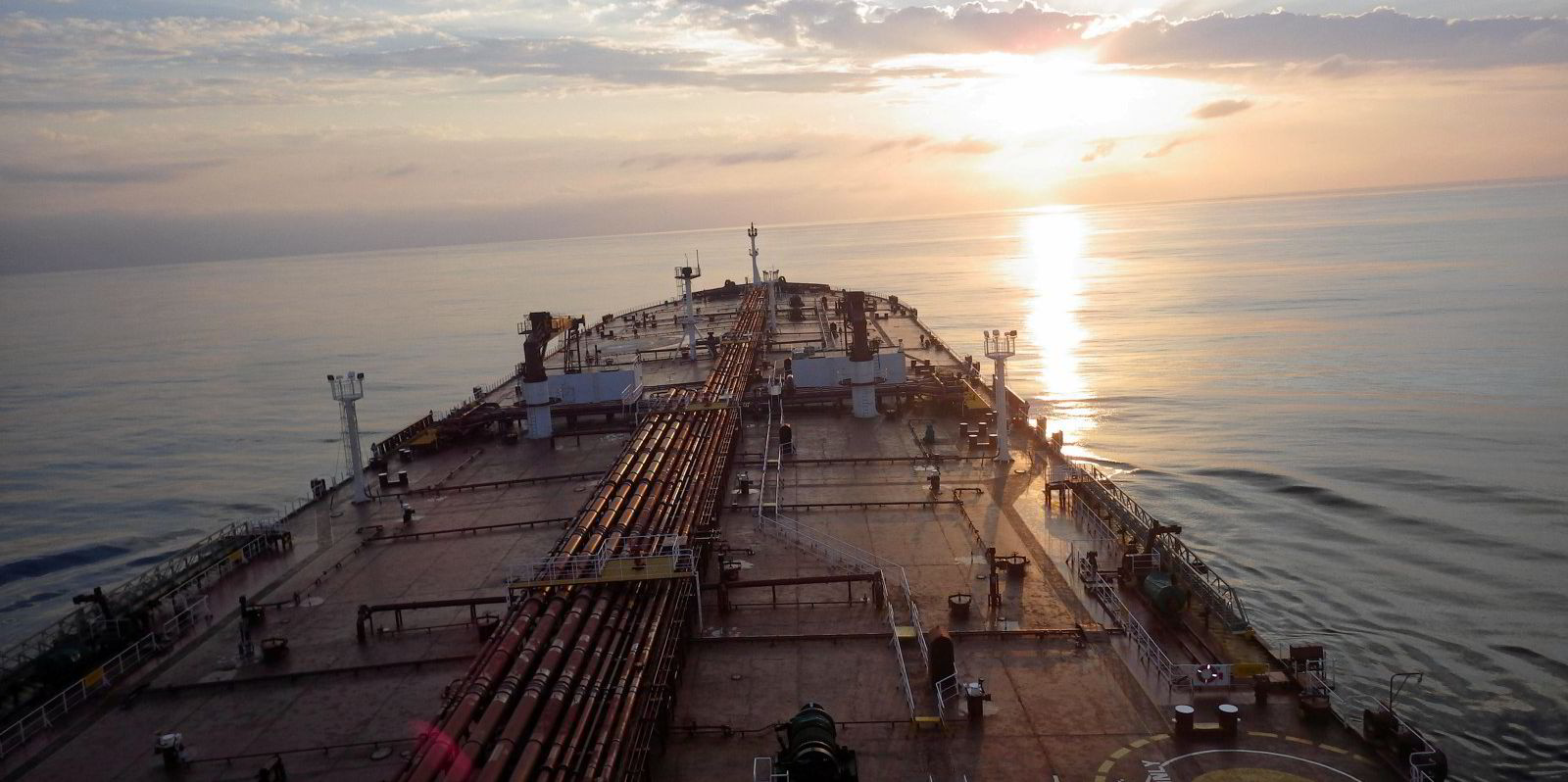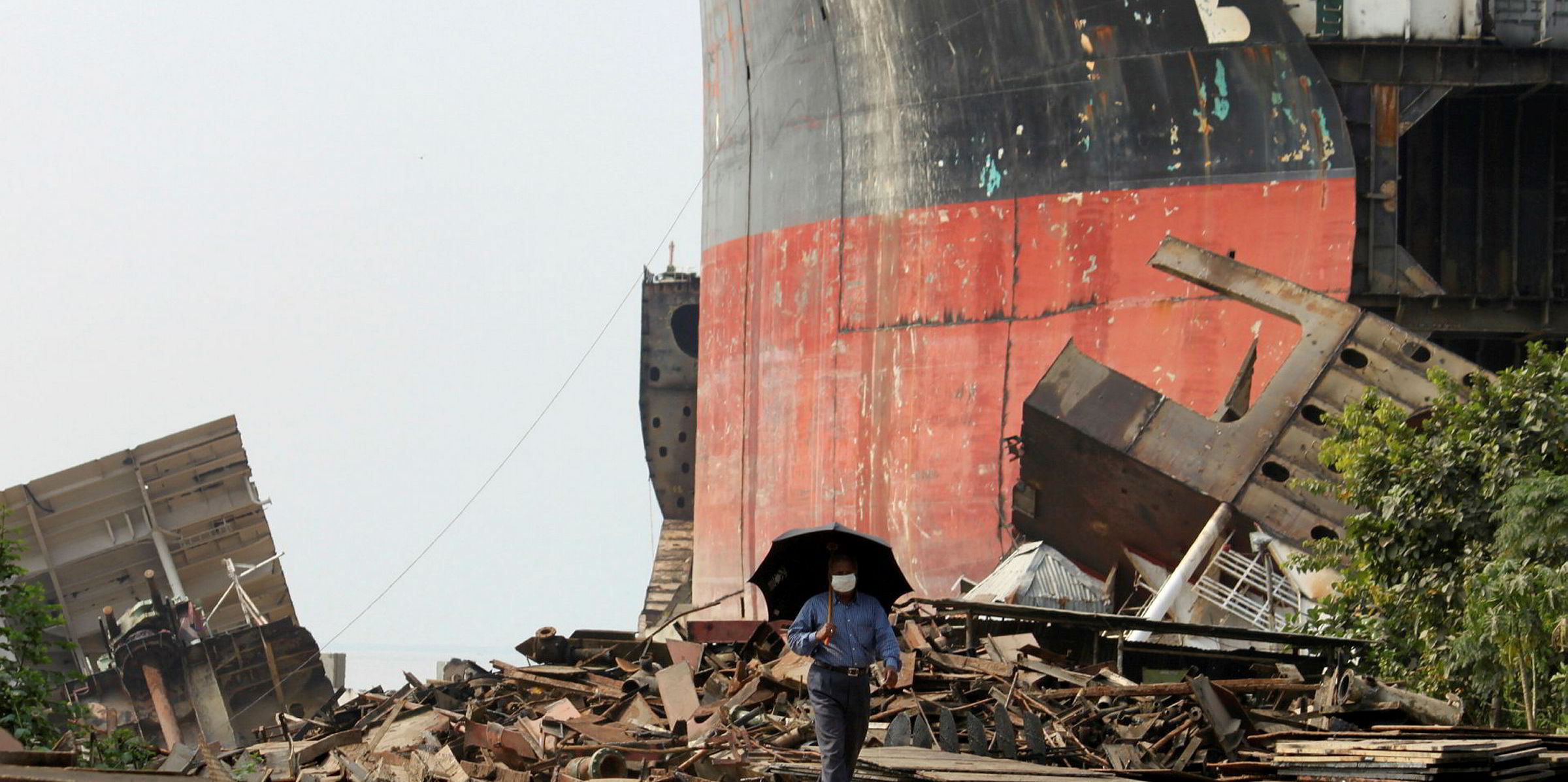Maran Tankers has failed in its attempt to strike out a compensation claim brought by the widow of a Bangladeshi recycler who died dismantling one of its former ships.
Maran Tankers — part of the Angelicoussis Shipping Group — had appealed a previous ruling on the landmark claim that was brought against its UK entity, Maran UK, by Hamida Begum.
Justice Robert Jay had ruled in July last year that the compensation claim for the death of recycler Khalil Mollah could proceed to trial at the UK High Court.
The Court of Appeal decision on Wednesday now paves the way for Begum to have her claim heard at the High Court in London.
Landmark ruling
It is the first time such a claim has passed the necessary legal hurdles to go to trial. An earlier claim brought against Zodiac Maritime for injury caused to a scrap yard worker who was dismantling one of its vessels was settled out of court.
But now two separate legal hearings have affirmed the victims', and their relatives’, right to bring compensation claims against the original owners of a vessel in cases of death of injury caused during recycling.
The landmark ruling could also open the flood gates to similar cases as well as putting pressure on shipowners to ensure their vessels are safely demolished in the future.
Justice Peter Coulson, one of three appeal court judges, which heard Maran's appeal, backed the original ruling. He said: “I consider that the duty of care alleged in this case, although faced with formidable hurdles, cannot be dismissed as fanciful … and it would be wrong in principle to strike it out at this stage.
“The appellant [Maran] arguably played an active role by sending the vessel to Bangladesh, knowingly exposing workers, such as the deceased, to the significant dangers which working on this large vessel in Chattogram entailed.”
Mollah, fell to his death in March 2018 while working on the demolition of the 300,000-dwt oil tanker EKTA (built 1995), formerly named the Maran Centaurus before its sale for demolition at the Zuma Enterprise Shipyard in Chattogram.
Human Rights law firm Leigh Day, acting for widower Begum, claimed that, although the vessel had been sold to a third-party cash buyer before demolition, Maran had a duty of care to ensure the vessel was safety demolished.
Maran argued that there was nothing else that they could have done, or should have done, to avoid the risks to the deceased.
UK Court of Appeal judge Justice Stephen Males commented: “Maran (UK) Ltd argued that it did not control the ship’s ultimate destination, there was no relationship of 'proximity' between the shipowner and Mr Mollah, a requirement for any duty of care, and if Mr Mollah had not been killed while working on the EKTA he might just as easily have been killed or injured when working on some other ship."
But Males said that he believed the shipping company still had a duty of care. “The defendant did not have control over working conditions in Chattogram, but it did have control over whether the claimant’s husband would be exposed to the risk of death or serious injury from working on its ship.
'Shock waves'
"That was a foreseeable risk which the defendant created by its decision to send the vessel to be broken up in Bangladesh and is arguably sufficient, in my judgment, to create the necessary relationship of proximity."
Leigh Day partner Oliver Holland said the ruling would send “shock waves” around the industry as it confirmed the duty of care shipowners have to dismantle their ships safely.
“My client is extremely relieved that the Court of Appeal rejected the defendant’s appeal and has allowed her claim to proceed to a preliminary issue hearing in the High Court,” he said.
"The Court of Appeal’s findings on duty of care will send shockwaves around the shipping industry as a higher court has recognised that shipping companies choosing to send vessels to the beaches of Bangladesh may owe a duty of care to the local workers and can be liable when things go wrong.”
Maran was contacted for comment.







